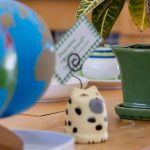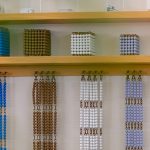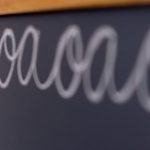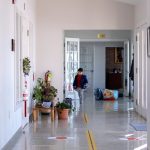We include here some helpful hints on adapting your home environment in simple ways that support the Montessori approach to developing independent children who are both free to be active, creative learners, and responsible family members. There are informative readings for each age level and links to current research on the outcomes of a Montessori education.
Research
“Montessori Education Provides Better Outcomes Than Traditional Methods, Study Indicates,”
– Science, September 29, 2006 issue
Outcomes for Students in a Montessori Program, a longitudinal study of the experience in the Milwaukee Public Schools, May 2003
A Comparison of Montessori and Traditional Middle Schools: Motivation, Quality of Experience, and Social Context, Kevin Rathunde
Montessori, The Science Behind the Genius, Angeline Lillard (Oxford University Press, 2007)
Home Environment
The Preparation of the Home Environment, The Cobb School, Montessori
The Preparation of the Home Environment gives parents some ideas on how we work with the children at school, and how you can transfer some of those methods into your child’s life at home.
The ideas put forth in that pamphlet are merely suggestions. Any activities your family participates in can be broken down into logical steps and the Montessori Method applied. You do not need to buy special Montessori materials used in class to help your child become independent. In fact, we discourage you from doing so, as your child might not be as attracted to the work at school. However, if you are having difficulty finding small pitchers, buckets and mops, some sources that might be of help to you in preparing the home environment are:
Montessori Services
Michael Olaf
AMI Montessori Materials
Suggested Reading
Seldin, Tim & Epstein, Paul Ph.D. The Montessori Way (The Montessori Foundation Press)
A clear and comprehensive introduction to the philosophy and educational approach that is practiced in Montessori schools, large and small around the world
Lillard, Paula Polk & Jessen, Lynn Lillard. Montessori from the Start (Schocken)
Parental guidance for the establishment of an environment to aid in the development of focus and concentration from birth to three years old
Lillard, Paula Polk. Montessori – A Modern Approach (Schocken)
An introduction to the Montessori approach to education at the preschool level
Montessori, Maria. From Childhood to Adolesence (Clio)
This work follows the child from the age of seven through adolescence.
Additional Resource Links
Maria Montessori: guru for a new generation of business innovators
This article written by James Martin, as a special to The Globe and Mail, describes how Montessori alumni impact the business cultures of today:
Montessori: The Missing Voice in the Education Reform Debate
This article, written by Laura Flores Shaw, recently appeared in The Huffington Post.
Why we need to let kids be creative
This article was written by By Carolina A. Miranda of parenting.com. “The word ‘creativity,’ in our society, tends to be applied to artistic endeavors. But divergent thinking is an essential part of everyday life, whether it’s navigating office politics or devising a new social-media network,” she writes. Divergent thinking is something we stress here at WMS.
Montessori Transitions
This article was written by Dane Peters, Head of Brooklyn Heights Montessori School.
Montessori Mafia
This article appeared in the Wall Street Journal and was inspired by Ryan Sager, WSJ Commissioning Editor and a 1993 graduate of Washington Montessori School.
Montessori Madness
This video is a “fast-draw” animation of a talk by Trevor Eissler, Montessori parent and author of “Montessori Madness: A Parent to Parent Argument for Montessori Education.”









